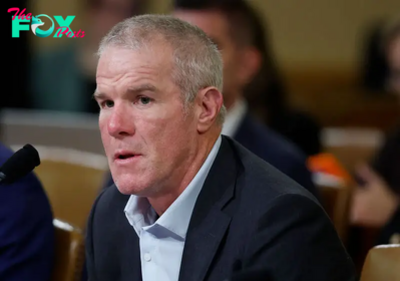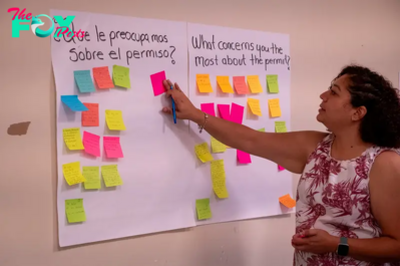Health
Amendment 79: An attempt to preserve abortion access in Colorado’s constitution

Voters will decide Nov. 5 whether to preserve unfettered abortion access in Colorado in the state constitution and lift a 40-year-old state ban on the use of government funds for the procedure.
Amendment 79, which requires the support of 55% of voters to pass, comes amid a wave of similar measures being considered across the country this year in the wake of the U.S. Supreme Court’s 2022 ruling overturning Roe v. Wade.
Here’s who is behind Amendment 79 and how it would affect abortion access in Colorado.
How would Amendment 79 affect the status quo when it comes to abortions in Colorado?
Under current Colorado law, abortion is legal in the state at any time during a pregnancy. Amendment 79 wouldn’t affect that. It would simply prohibit any state or local government regulation from denying, impeding or discriminating against the right to abortion access.
Colorado is one of seven states without limits on when an abortion can occur during a pregnancy. Less than 1% of abortions in the U.S. are performed after five months of pregnancy and those often involve severe fetal anomalies or health risks to the mother.
☀️ READ MORE
Amendment G: Should more disabled veterans qualify for Colorado’s homestead property tax break?
Amendment K: Colorado election officials would have more time to prepare ballots
A procrastinator’s guide to Colorado’s primary elections on June 25
Abortion has been legal in Colorado since 1967. In 2022, the legislature passed a bill that was signed into law by the governor affirming that right. If passed, Amendment 79 would prevent the legislature from adopting any abortion restrictions. Only stripping Amendment 79 from the constitution, a tall task, would make that possible.
The only two limits on abortion access in Colorado are a 1984 constitutional amendment approved by voters prohibiting public money being used to pay for abortions and a 2003 law that requires Health care providers to notify a parent or guardian of a minor at least 48 hours before the child is scheduled to get an abortion.
Amendment 79 would lift the prohibition on public funds being used to pay for abortions, but it would not affect the parental notification law.
What would Amendment 79 mean for government employees in Colorado?
Amendment 79 would allow health insurance plans that are offered to state and local government employees to include coverage of abortions. Currently, under the 1984 constitutional amendment, that isn’t allowed.
There are tens of thousands of state and local employees in Colorado.
How about for people who receive Medicaid?
Amendment 79 would let Medicaid cover abortions in Colorado. Currently, that’s not allowed under the 1984 constitutional amendment, except in cases where the life of a mother is in danger or when a pregnancy is the result of rape or incest.
How does this fit into the national context?
The overturning of Roe v. Wade, the U.S. Supreme Court’s 1973 decision protecting the right to an abortion without excessive government restriction, prompted new and tightened restrictions on abortion access across the U.S.
More than 25 million women ages 15 to 44, or about 2 in 5 nationally, now live in states where there are more restrictions on abortion access than there were before, according to The Associated Press.
In response, abortion rights groups have put measures on statewide ballots asking voters to protect abortion access.
Other states with abortion rights measures on the ballot this year include Arizona, Florida, Maryland, Missouri, Montana, Nebraska, Nevada and South Dakota.
Who is spending money to support and oppose Amendment 79?
Coloradans for Protecting Reproductive Freedom, a coalition of abortion rights groups, is the main issue committee behind the ballot measure.
It had raised about $5.6 million through Sept. 25. Much of that has come from the Colorado abortion rights nonprofit Cobalt Advocates.
Other major donors to Coloradans for Protecting Reproductive Freedom include the Institute for Responsive Government, a liberal-leaning political nonprofit; Oklahoma philanthropist Lynn Schusterman; former oil and gas executive and Democratic donor Merle Chambers at $200,000; the Rose Community Foundation; and the ACLU of Colorado.
The committee’s spending has gone toward signature gathering to get the measure on the November ballot, as well as toward purchasing TV ad time leading up to Election Day.
-

 Health9h ago
Health9h agoAnti-Trans Laws Linked to Increase in Trans and Nonbinary Youth Suicide Attempts
-

 Health22h ago
Health22h agoIs it bad to listen to music all the time? Here’s how tunes can help or harm
-

 Health1d ago
Health1d agoHow do you see pictures in your brain?
-

 Health3d ago
Health3d agoWhat happens when you hold in a fart?
-

 Health3d ago
Health3d agoHow the U.S. Military Plans to Tackle Its ‘Forever Chemical’ Problem
-

 Health3d ago
Health3d agoHow to Stop Checking Your Phone Every 10 Seconds
-

 Health4d ago
Health4d agoWhat causes people to 'choke' under pressure?
-

 Health4d ago
Health4d agoFormer NFL Star Brett Favre Reveals He Has Parkinson’s. Here’s What to Know



























